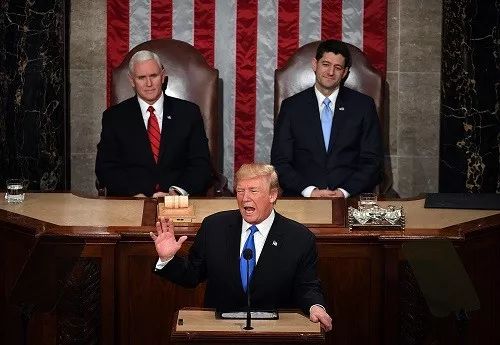
Recently, a highly anticipated event occurred in the US business sector: the Trump administration announced a one month tariff exemption policy for imported cars under the USMCA agreement. This policy adjustment quickly caused a chain reaction in the market, with not only a significant rebound in the US stock market, but also significant increases in the stock prices of many giants in the automotive industry such as Stellantis, General Motors, and Ford Motor. At the same time, the Canadian dollar exchange rate also rose, reflecting the market's positive response to this policy adjustment.
The Trump administration's attitude towards trade policy has always been controversial. As an active advocate of protectionist trade policies, the Trump administration has frequently used tariff measures in the past few years, aimed at protecting domestic industries, promoting job growth, and striving to correct the long-standing trade deficit problem in the United States. However, these measures have also attracted widespread attention and criticism from the international community, and are considered to have a tendency towards trade protectionism and unilateralism.
The tariff exemption policy for imported cars under the USMCA can be seen as a subtle adjustment of the Trump administration's trade policy. By temporarily easing tariffs on Canadian and Mexican cars, the government is attempting to ease tensions with these two important trading partners and create more favorable conditions for smooth cross-border trade. This measure not only helps promote the recovery and development of the US automotive industry, but also strengthens economic cooperation and connections between the US, Mexico, and Canada, injecting new impetus into regional economic integration.
The market has given positive feedback on the Trump administration's policy adjustment. The rebound of the three major US stock indices and the significant increase in the stock prices of automotive giants fully demonstrate investors' recognition and expectations of this policy. They generally believe that this policy adjustment will help enhance the competitiveness of the US automotive industry, promote employment growth, and drive the development of related industrial chains. However, it is worth noting that this policy adjustment has also brought some potential challenges. Firstly, Canada's response to this policy has not been as positive as expected. The Canadian government has stated that Canada will not end its retaliatory tariffs unless the United States completely cancels its tariffs on Canada. This statement undoubtedly brings new uncertainty to the US Canada trade relationship and increases the difficulty of future trade policy adjustments. Secondly, the Trump administration reiterated its stance in a congressional speech that it will continue to implement tariff policies and expressed its willingness to repeal the Chip Act. These statements further exacerbate the market's concerns and uncertainties about the future direction of trade policies. Investors are beginning to worry whether the Trump administration will continue to use tariffs to push its protectionist agenda, leading to broader trade disputes and economic losses.
The adjustment of tariff policies by the Trump administration reflects the complexity and challenges of current global economic integration. The future development of the business environment in the United States will be full of uncertainty. In the context of globalization, economic ties between countries are becoming increasingly close, but tendencies such as trade protectionism and unilateralism still exist. How to balance national interests and global cooperation has become an important issue facing governments around the world.
In short, although the Trump administration's tariff policy adjustments have attracted widespread attention and reactions from the market, they have also brought new challenges and opportunities for the future development of the US business environment. In the future development, the government and enterprises need to work together to strengthen cooperation and communication, in order to achieve the goal of mutual benefit and common development. At the same time, the international community should strengthen supervision and restraint of trade protectionism, and jointly maintain the global trade order and economic stability.

On January 7th local time, GameStop (GME.US) announced that the company's board of directors had approved a potential executive compensation package worth $3.54 billion, which was targeted at the company's CEO, Ryan Cohen. At the same time, this new compensation package set extremely high performance thresholds: Cohen, the CEO, needed to increase the company's market capitalization from $9.5 billion to $100 billion.
On January 7th local time, GameStop (GME.US) announced that…
According to the British media The Guardian, recently US Pr…
In today's era of deep integration of globalization and dig…
In early 2026, US President Trump forcibly took control of …
Recently, the corn market dynamics analysis released by Aus…
Donald Trump has proposed an "immediate" restriction on lar…